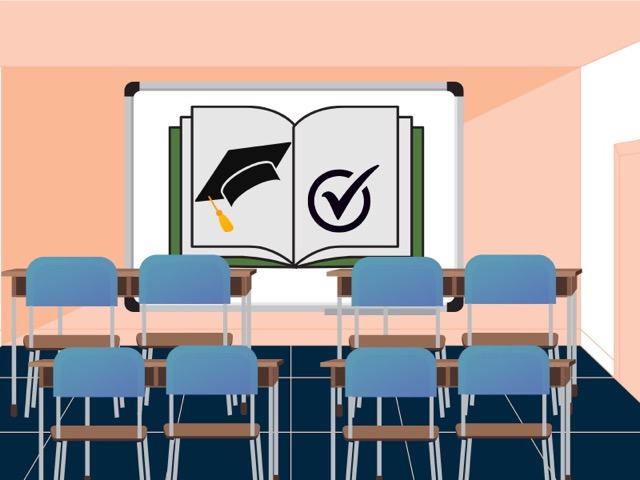We’ve all heard of the Ivy League. The eight shiny schools, ever-prestigious and for many, the ultimate accomplishment for high school students.
For countless students, chasing prestige can feel like an exhausting all-consuming race. It’s not too dramatic to say that sometimes, one grade, one missed opportunity, one mistake and it suddenly feels like all hopes of getting into your dream college are at risk. So much of the process is hidden behind closed doors. That means it can feel like you are grasping at something that doesn’t exist, and trying to compartmentalize yourself into that “perfect student.”
Is this really how access to higher education is supposed to feel? Much of the obsession with these elite institutions can be traced back to how American culture glorifies college rankings. In the 1980s, the U.S. News & World report released its first ranking list, designed to offer a digestible hierarchy of undergraduate universities based primarily on reputation. Though initially intended as a simple tool to compare universities, it quickly became a culture stable, fueling a hyper-competitive college admissions environment. Today the rankings are a dichotomy of something influential as well as contentious, having faced accusations of data manipulation and unreliable methodologies. Critics question whether it’s appropriate, or even accurate, to rank colleges on a simplistic scale. And it’s not just universities who are ranked lower that protest. Harvard, Yale, Columbia, and Stanford are amongst the universities who benefit the most from this scale and yet now refuse to submit their own rankings of other universities.
The problem runs deeper than just flawed rankings; college acceptance rates at these hyper-selective institutions now hover around 10% or lower, making the process feel like a game of chance rather than a reflection of merit or hard work. Acceptance rates are often manipulated to appear more exclusive through sometimes encouraging unqualified applicants to apply (i.e. sending students mail who might be below their GPA or SAT score bar). In January of 2023, Intelligent.com surveyed over 1,600 current 4-year college students along with those who have graduated from a 4-year school within the last five years, and found that 6 in 10 college applicants lie on their resumes, driven by the pressure to stand out in an ever more competitive pool.
Ironically, despite the seemingly relentless assurance from society that Ivy Leagues and the peer institutions have the best to offer, they are not necessarily the best in the world. When compared internationally, many American universities fall behind in terms of educational quality and accessibility. Germany, the Netherlands, and Switzerland boast world-class institutions that rival or even surpass the most prestigious universities and don’t rely on hyper selectivity or require students to craft resumes filled with endless extracurriculars. Instead they emphasize rigorous academics, accessibility, and affordability allowing students to focus on intellectual growth rather than resume padding.
Furthermore, the toll this prestige-driven mindset takes on students is undeniable. The pressure to “succeed” by attending a top tier college has been linked to anxiety, depression, and burnout. Many students become so fixated on a single path to success that they lose sight of the broader picture: why higher education exists in the first place. College is a place of self-discovery as well as learning. Schools are supposed to offer increased job opportunities, higher earning potential, greater job security, as well as the chance to develop valuable skills and build a professional network. Many less selective or lesser known colleges offer just as much, if not more access to all of the above. We need to stop believing in the lie that low acceptance rates equal an institution that has everything you need to not just succeed but thrive.
What should truly matter when it comes to evaluating a college is not a rankings list determined by a simple list of data and its perceived sense of exclusivity, but how schools align with an individual’s personal goals and interests. Factors like academic programs, campus culture, financial support, and career services should carry more weight than a school’s brand name. Consider if you are disabled, or neurodivergent, does this school provide good resources that will support my success? Yet the cultural narrative surrounding college admissions often prioritizes prestige over personal fit.
Rejection from a prestigious university does not define your worth or dictate your future. While it’s easy to feel like a door has closed, it’s important to remember that countless paths to success exist outside of Ivy League walls. Some of the world’s most influential figures build their legacies at institutions that wouldn’t make it to the top of any ranking list. Steve Jobs, co-founder of Apple dropped out of Reed college, Oprah Winfrey, one of the most successful media moguls of all time, attended Tennessee State University, Howard Shultz, former CEO of Starbucks went to Northern Michigan University. These stories remind us that success is not determined by the prestige of one’s alma mater, but by the passion, dedication, and resilience brought to one’s pursuits. Your value doesn’t diminish because of an admissions decision.
Coping with rejection is challenging, but it’s also an opportunity to reassess and refocus. Allow yourself to grieve and process your emotions. Talk to trusted friends, family, or mentors about how you’re feeling. Then, start researching schools that may not have been your first choice but still offer excellent academic programs, vibrant communities, and opportunities that align with your goals. Lean into the mindset that success comes from what you do with the opportunities you have, not just where you go to school.
Ultimately, moving beyond the prestige myth means acknowledging that fulfillment and accomplishment are not tied to a single institution. The most important thing is to find a place where you can thrive and grow into the person you’re meant to become.

 The Zine Scene
The Zine Scene